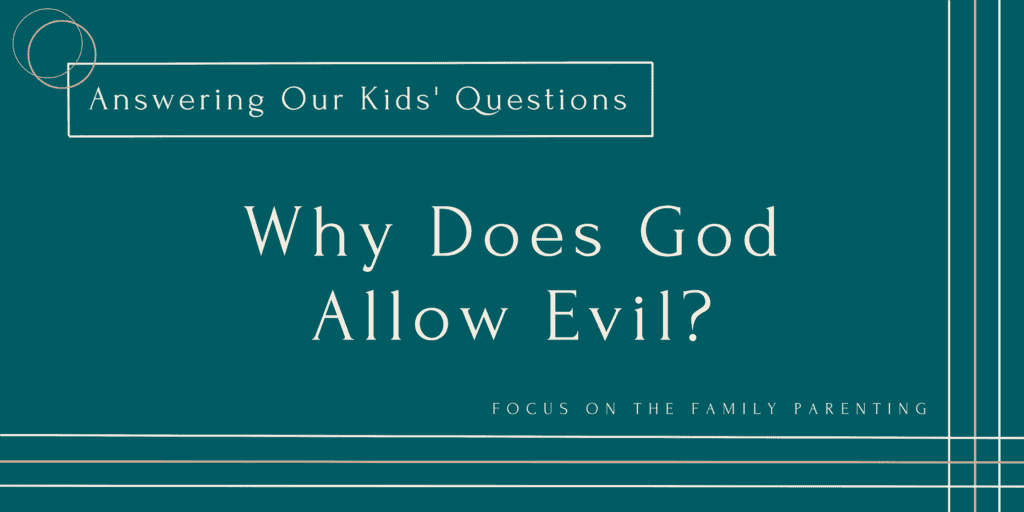College-bound kids and their faith have never been more threatened. As a parent, you can make sure they are already connected in community.
Doubt/Struggles with Faith
Help kids see that God works through pain and suffering in their and other people’s lives.
To answer the question: Why does God allow suffering?, you and your children will need some logic, communication, and patience, as well as an understanding of God’s wisdom and the Bible.
What is considered toxic today, though, is largely determined by subjective experience, not objective truth.
Witchcraft has been around a long time. But its promises are empty. Here is what you should know about Wicca.
Learn what Wicca is, its followers interest in the beliefs and principles, and God’s perspective on Wicca.
Doubt about the future strikes every new widow and widower at a time when their security has been greatly shaken. Many fears and questions arise. Whether or not you’ll be able to live as well in the future is determined by three things: your income, expenses, and long-term needs.
“If everything has a cause, then who or what caused God?” While this question is often asked, it is inherently flawed. J.P. Moreland explains.
How can you respond when a skeptic questions Christ’s resurrection? Bill Myers and Michael Ross offer some tips.
When adult children reject the faith, questions arise from the emotions and doubt. Learn how to commit to loving your kids in this situation.
Most of us have encountered problems in our prayer lives to one degree or another. Maybe God did not answer our prayer [1]. Or we encountered a moral dilemma such as should we pray for or against enemies? Perhaps we wonder whether or not prayer is worth bothering about. After all, if everything is already …
Adversity has the potential to move us closer to God if we are willing to be honest with Him during trials.
When your adult child has rejected the faith he or she was raised in, as a parent it’s easy to feel helpless.
Michael Ross offers tips for answering skeptics who ask the question: “Does God Really exist?”
Insights for parenting a new generation
When adult children deconstruct their Christianity, it can lead to isolation and self-centeredness as they prioritize their desires or preferences over their family.
Finding a way to fit science and religion together can feel overwhelming. For our teens, logic and reasoning present some of the greatest threats to complete belief in Christianity. However, as parents, you can guide your teen to a deeper understanding of how God created science to support our faith and belief in Him.
While the problem of evil appears complicated, it’s certainly not a theological showstopper. Using Scripture mixed with a healthy dose of logic, you can adequately address your children’s concerns about why does God allow evil?
You don’t need a degree in philosophy to incorporate apologetics into sermons. A solid study of basic logic, worldviews and arguments for Christianity and against other viewpoints can fortify those in the church to have a winsome reason for their hope in Christ
Doubt is best worked through individually with trusted friends. If leaders confess doubts on major Christian doctrines, their congregations may lose confidence in their leadership, equate doubt with unbelief, or be thrown into an unnecessary crisis of faith themselves.





























